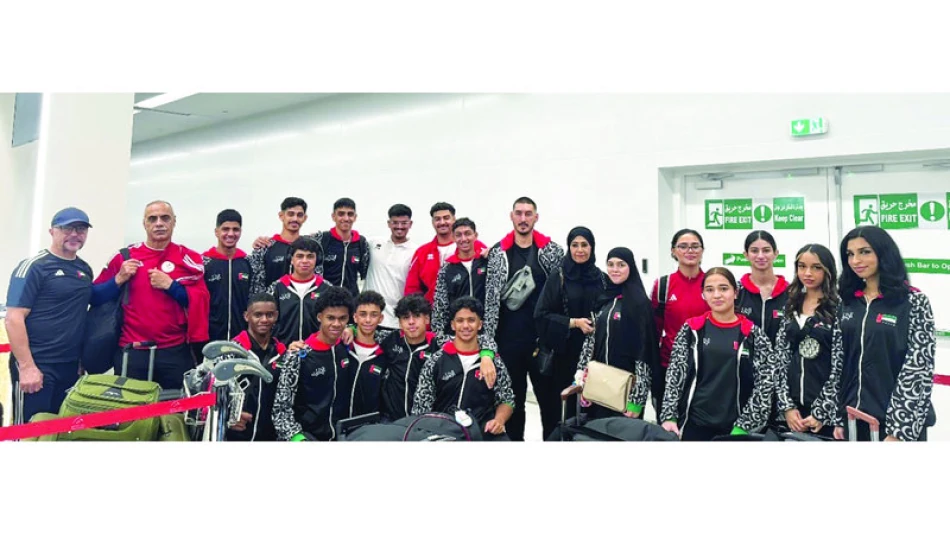
Karate National Team Departs for Jordan to Compete in Two Prestigious Tournaments
UAE Karate Team Eyes Regional Glory in Back-to-Back Championships
The UAE national karate team is positioning itself for a decisive showing at two major regional tournaments in Jordan this month, as the sport continues to gain strategic importance across the Middle East. With 18 athletes competing in both the Arab Championship and West Asia Championship in Amman, the Emirates seeks to capitalize on its growing martial arts infrastructure and establish itself as a regional powerhouse in combat sports.
Strategic Timing and Regional Competition
The tournaments, scheduled from August 20-22 for the Arab Championship and August 24-25 for the West Asia Championship, represent more than routine competition. They arrive at a time when Gulf nations are increasingly investing in sports diversification as part of broader economic and cultural strategies.
The UAE delegation, led by team manager Mohammed Harbuk Al Shehi, departed for Jordan with a comprehensive support structure including national team director Ahmed Salem Basaleeb and international referee Amina Haji. This level of organizational investment reflects the Emirates' systematic approach to sporting excellence, mirroring successful models in football and other disciplines.
Competitive Landscape and Market Dynamics
The Arab Championship will feature 12 national teams, including traditional martial arts powers like Saudi Arabia, Iraq, and Algeria, alongside emerging programs from Qatar and Bahrain. The West Asia Championship narrows the field to 10 teams, creating a more concentrated competition that could serve as a preview for future regional dynamics.
Major General (Ret.) Nasser Abdul Razaq Al Razouqi, who holds leadership positions in the UAE, Asian, and serves as vice president of the International Karate Federation, expressed confidence in the team's preparation while acknowledging the competitive intensity ahead.
Broader Implications for UAE Sports Strategy
This dual-championship approach aligns with the UAE's broader sports diplomacy initiatives. The country has successfully leveraged athletic excellence in Formula 1, golf, and tennis to enhance its international profile. Karate, with its Olympic recognition and global appeal, represents another avenue for soft power projection.
The timing also coincides with increased regional investment in martial arts facilities and training programs. Saudi Arabia's Vision 2030 includes significant sports components, while Qatar continues post-World Cup sporting initiatives. The UAE's participation in these championships positions it within this competitive regional landscape.
Technical and Training Considerations
The coaching staff, featuring Waheed Hosseini, Nader Bigi, and Hawraa Al Ajmi, represents a blend of local expertise and international experience. This approach has proven effective across UAE sports programs, combining cultural understanding with technical innovation.
The 18-athlete roster spans multiple weight classes and categories, suggesting a comprehensive approach rather than concentration in specific divisions. This strategy could yield broader medal opportunities while developing depth for future competitions.
The back-to-back tournament structure provides unique advantages, allowing teams to maintain competitive sharpness and make tactical adjustments between competitions. For the UAE, this could prove decisive in maximizing their regional championship potential.
Most Viewed News

 Sara Khaled
Sara Khaled






